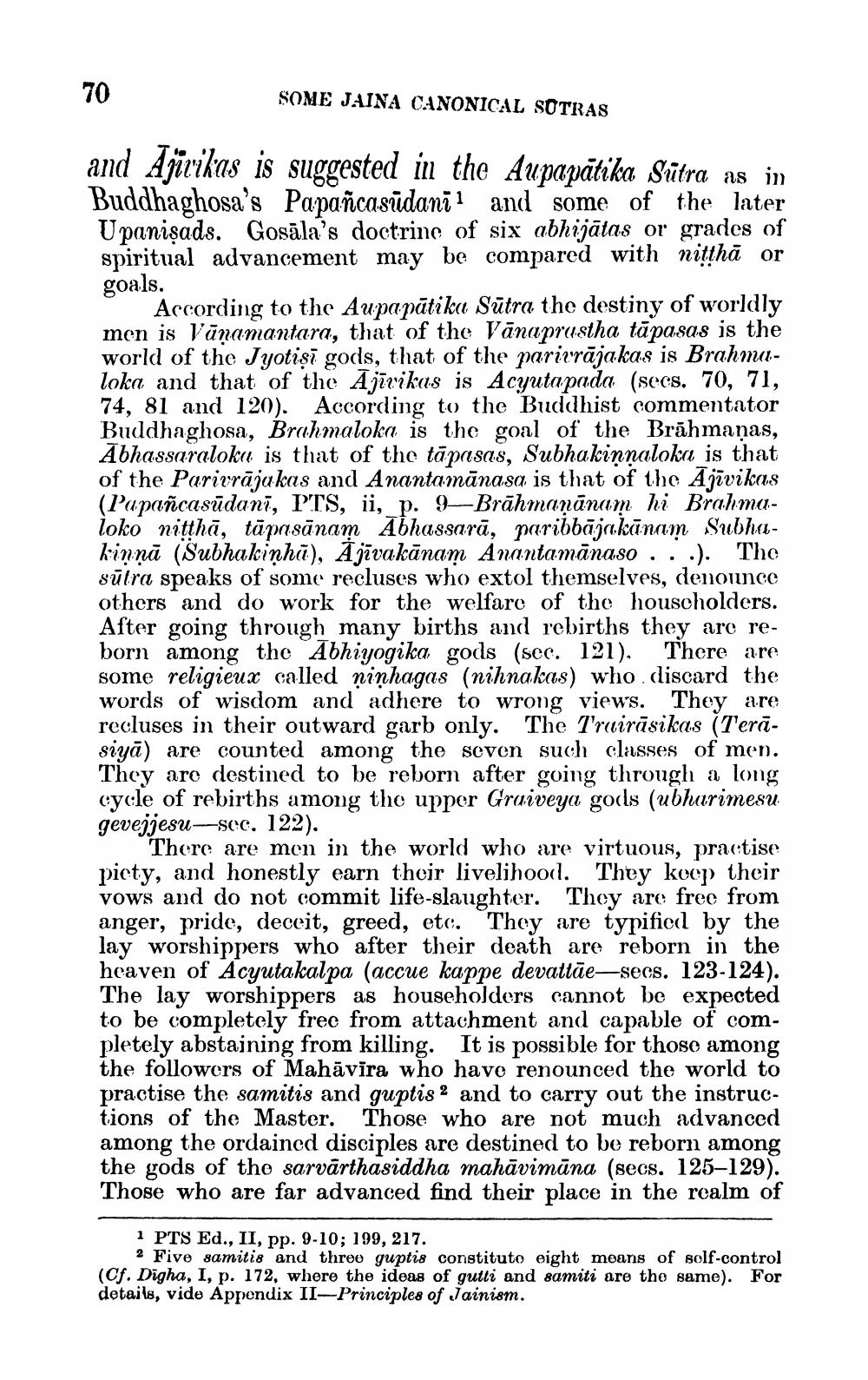________________
70
SOME JAINA CANONICAL SUTRAS
and Afrikas is suggested in the Aupapatika Sutra as in Buddhaghosa's Papañcasudani1 and some of the later Upanisads. Gosala's doctrine of six abhijātas or grades of spiritual advancement may be compared with nitṭha or goals.
According to the Aupapātika Sutra the destiny of worldly men is Vāṇamantara, that of the Vanaprastha tāpasas is the world of the Jyotisi gods, that of the parivrajakas is Brahmaloka and that of the Ajivikas is Acyutapada (secs. 70, 71, 74, 81 and 120). According to the Buddhist commentator Buddhaghosa, Brahmaloka is the goal of the Brahmanas, Abhassaraloka is that of the tapasas, Subhakinnaloka is that of the Parivrajakas and Anantamanasa is that of the Ajivikas (Papañcasudani, PTS, ii, p. 9-Brāhmaṇānam hi Brahmaloko nitṭhā, tāpasānam Abhassarā, paribbājakānam Subhakinna (Subhakinha), Ajivakānam Anantamanaso...). The sutra speaks of some recluses who extol themselves, denounce others and do work for the welfare of the householders. After going through many births and rebirths they are reborn among the Abhiyogika gods (sec. 121). There are some religieux called ninhagas (nihnakas) who discard the words of wisdom and adhere to wrong views. They are recluses in their outward garb only. The Trairāsikas (Terāsiya) are counted among the seven such classes of men. They are destined to be reborn after going through a long cycle of rebirths among the upper Graiveya gods (ubharimesu gevejjesu-sec. 122).
There are men in the world who are virtuous, practise piety, and honestly earn their livelihood. They keep their vows and do not commit life-slaughter. They are free from anger, pride, deceit, greed, etc. They are typified by the lay worshippers who after their death are reborn in the heaven of Acyutakalpa (accue kappe devattae-secs. 123-124). The lay worshippers as householders cannot be expected to be completely free from attachment and capable of completely abstaining from killing. It is possible for those among the followers of Mahavira who have renounced the world to practise the samitis and guptis 2 and to carry out the instructions of the Master. Those who are not much advanced among the ordained disciples are destined to be reborn among the gods of the sarvarthasiddha mahāvimāna (secs. 125-129). Those who are far advanced find their place in the realm of
1 PTS Ed., II, pp. 9-10; 199, 217.
2 Five samitis and three guptis constituto eight means of self-control (Cf. Digha, I, p. 172, where the ideas of gutti and samiti are the same). For details, vide Appendix II-Principles of Jainism.




